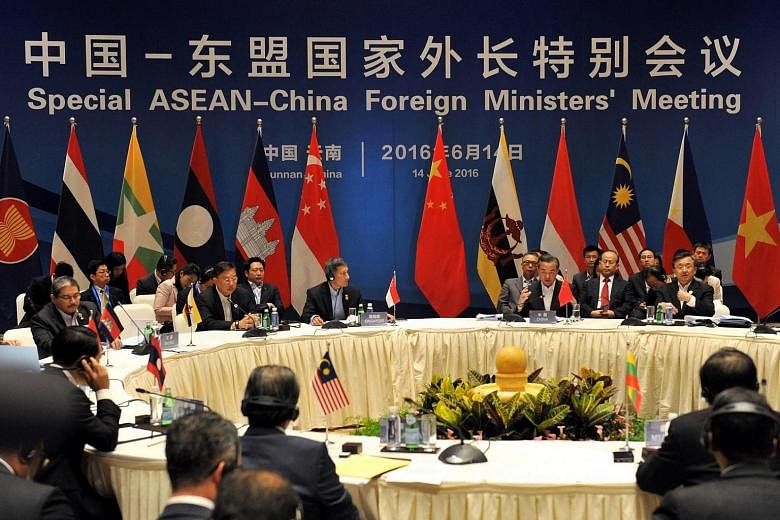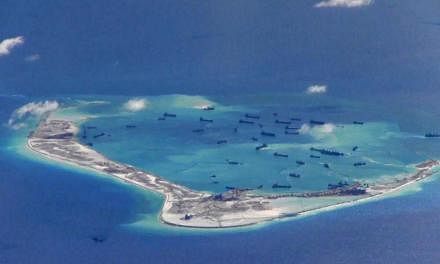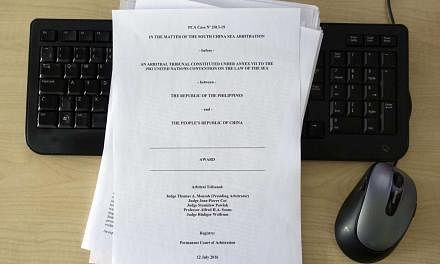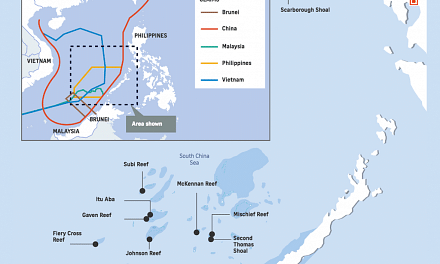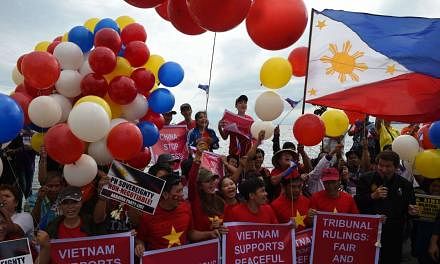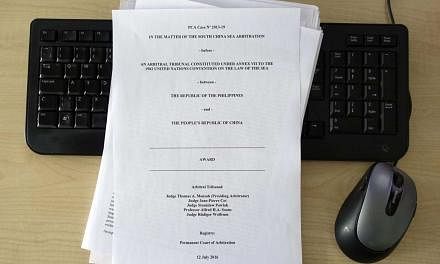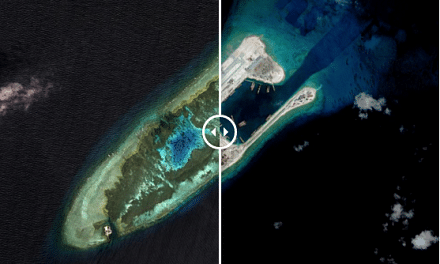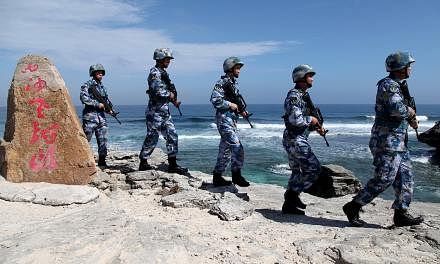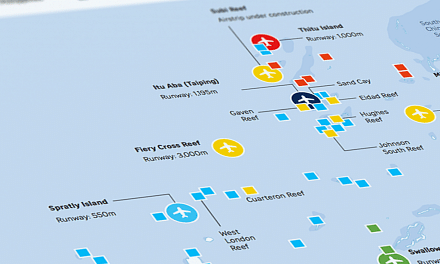Kavi Chongkittavorn
The Nation / Asia News Network
At Kunming last month, Asean and China tried very hard to create a "new comfort level", hoping they could embark on another 25 years of trustful and prosperous relations and cooperation.
That was not to be.
It was a different ball game altogether, as both sides' behaviour demonstrated clearly.
Now they are racing against time as they have 88 days left before their leaders meet in Vientiane, Laos in early September to mark their 25th anniversary.
It is not wrong to describe this transitional period as a do-or-die moment.
Later this month, Asean foreign ministers will meet their Chinese counterparts again at a post-ministerial meeting in Vientiane.
It will be another crucial moment to reboot mutual dialogues to mend fences and work on joint commitments and other documents, in whatever form and name, which will be released after the upcoming summit.
We must not forget that Asean and Chinese leaders have met 18 times already since the first informal encounter in 1997.
Today in Jakarta, Beijing has flown in a special cultural troupe from the Guangxi Arts Institute to celebrate the anniversary of Asean-China friendship and cooperation.
Indeed, tangible outcomes from Kunming ahead of this event could have served as an excellent confidence-building precursor for such an important occasion.
Unfortunately, the South China Sea quagmire has already robbed both sides of the kind of rapport and trust they previously had and enjoyed.
For the past 25 years, their comfort level was unshakeable, providing the foundation of more comprehensive and bolder visions of their relations resulting in myriad agreements and achievements.
Strictly on their own, Asean and China have been able to manage their strategic interests and accommodate one another well.
However, the rise of China and its global strategic imperatives have made overall Asean-China relations far more complicated and at times hard to reconcile.
To create a new comfort level between Asean and China at this juncture is easier said than done, due to domestic and external unpredictability.
These days all Asean members have become more assertive even though they have entered the era of an Asean Community.
On the surface, it creates an impression of a shattered Asean without any unity whatsoever.
In coming weeks, Asean will have to prove that this is the wrong impression. Different positions and views are common within Asean - they were unwittingly described as disunity among the Asean sceptics.
Closer examination shows that Asean has never given up its centrality, the same pathway that all members agreed to adhere to.
During this transitional period, both sides have their work cut out to regain trust and confidence in an accelerated manner.
As early as 2009, it was clear the South China Sea dispute would be a barbed-wire entangling all concerned parties, both from within and without.
But it is still not too late to rebuild Asean's most comprehensive dialogue relationship, providing certain conditions are met.
First of all, the UN Permanent Court of Arbitration is expected to deliver its verdict tomorrow.
At the moment, numerous press reports have predicted possible fallout from the UN decision on China, which repeatedly said it would not accept any outcome.
Strange as it may seem, the UN decision could provide a new impetus for China and the Philippines to reconcile with each other.
Above all, they have the opportunity to clarify their positions related to the post-UN decision. Already, both parties have made known their goodwill towards each other by pledging not to overreact to the verdict.
Secondly, Asean and China need more dialogue and consultation at the higher level.
Generally speaking, current working groups and senior official meetings related to the implementation of action plans and the drafting of code of conducts in the South China Sea are moving at a snail's pace albeit with repeated pledges to expedite the process.
Due to political change within the Asean members, eight of Asean's foreign ministers are relatively new.
They need time to get to know each other before they can hold effective dialogues with external partners, especially China.
These days, only Malaysian Foreign Minister Anifah Haji Aman (since 2009) and Vietnamese Deputy Prime Minister and Foreign Minister Pham Binh Minh (since 2011) are considered veterans within Asean, as they have served much longer than other foreign ministers.
Chinese Foreign Minister Wang Yi has to deal with new batches of foreign ministers, who were political appointees, not career diplomats, coming from various disciplines and political circumstances.
When he served as senior official working on Asean-China relations, he had a good rapport with his Asean colleagues.
Now, he needs to create personal ties with the new Asean counterparts to make sure they are on the same page.
The Kunming rapture showed the lack of much needed coordination among all concerned parties.
Third, with President Rodrigo Duderte in charge, the Philippines has become more pragmatic, wanting direct talks with China as soon as possible.
Therefore, the overall Asean position on the South China Sea should be a lot stronger.
In truth, under the Aquino administration, the Philippines tended to belittle the grouping's ability to stand up against China on maritime disputes.
Instead, Manila has sought out US assistance to back-up its claims and has not paid full attention to the association at all.
Manila chose to distance itself from Asean and has failed to fully consult its colleagues on hordes of issues including its UN actions.
That explained why the grouping did not endorse its decision.
In contrast, after joining Asean in 1995, Vietnam has depended heavily on the unity and support of Asean in the South China Sea conflict.
Hanoi has purposely utilised the grouping's international creditability as part of its strategies to engage China.
Vietnam's discreet diplomacy has elevated the country into one of the most influential Asean members, especially its voice on overall security matters.
As the UN decision approaches, some Asean members are worried that any Asean statement on the China-Philippines arbitration case would set a future precedent on bilateral matters between an Asean member with an outsider.
As such they are concerned that the Asean common position could instead undermine the grouping's overall bargaining power and external relations.
Recently, Cambodian Prime Minister Hun Sen was the first Asean leader to reject vehemently any plan to issue an Asean statement on the outcome of the UN tribunal.
At this juncture, it is highly likely that the Lao chair will follow this road, as it lacks a much-needed consensus among Asean leaders.
However, Asean as a whole would prefer to state its position in the aftermath of the UN decision in the annual joint communique after its foreign ministerial meeting later this month.
That way, Asean could be more forthright with independent views and positions on the overall scheme of things in the South China Sea.
Vientiane will not repeat Phnom Penh's action in 2012.
Currently, Asean-China ties are in limbo.
Beijing's future ties with the grouping will serve as an indicator of its diplomatic engagement overseas in years to come.
Without accelerated and tangible progress on current efforts to restore trust and manage the South China Sea disputes, in the long-run China's foreign policy, including numerous regional initiatives, will face negative impacts.
